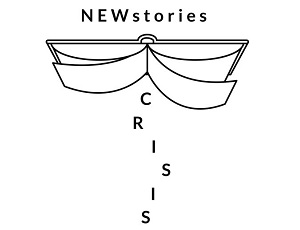
The 1st NEWstories Conference aims to bring together both undergraduate and postgraduate literary scholars to share their experience and research results on all aspects of crisis in 20th- and 21st-century prose. It also provides an interdisciplinary platform for those interested in politics, ecology and psychology. Participants are invited to present and discuss significant innovations, trends as well as challenges related to the issue of crisis.
The notion of crisis is at the core of any appraisal of the 20th and 21st centuries. The revolutionaries in Victor Hugo’s Les Misérables proclaimed that “[…] the nineteenth century is great, but the twentieth century will be happy.” However, it was crisis, not joy, that shaped the 20th century, as it was marred by two World Wars, the Great Depression, genocide, the nuclear arms race, the AIDS epidemic and numerous other crises. The 21st century witnessed one of its defining crises in its first year when terrorists attacked the World Trade Center, sparking off the war on terror and an economic crisis. The conference sets out to examine the ways in which these crises are depicted in 20thand 21st-century prose, as well as how literature itself changed throughout these tumultuous centuries, reflecting external crises. Moreover, the scope of interest of the conference includes ontological and epistemological crises, challenging preconceived notions connected with human existence and literature. NEWstories annual conferences will be devoted to various aspects of 20th- and 21st-century literature.
Postmodernism is more and more often claimed to be over, so it turns out that we are approaching a new literary epoch – as Pieter Vermeulen contends in Contemporary Literature and the End of the Novel: Creature, Affect, Form, “contemporary fiction’s dramatization of the end of the novel conveys a sense that neither these modern forms of life nor the novel’s cultural power are quite what they used to be.” Yet we still struggle to find a convincing name for the time we happen to live in. From postpostmodernism, through metamodernism, to dismodernism, all the already suggested options refer to the present, but also seem to have their roots in the previous century. How can we know, then, what literature is today? And how do we interpret history and our inspirations? Aware of the questions that arise at the beginning of the new millennium, the conference organisers invite literary scholars specializing in 20th- and 21st-century prose in all languages, hoping that the conferences will become a convenient forum to discuss current issues and doubts.
More information is available on the conference website.

